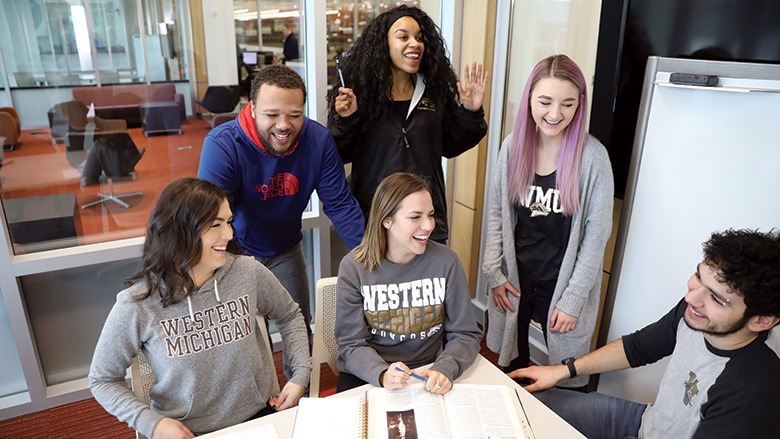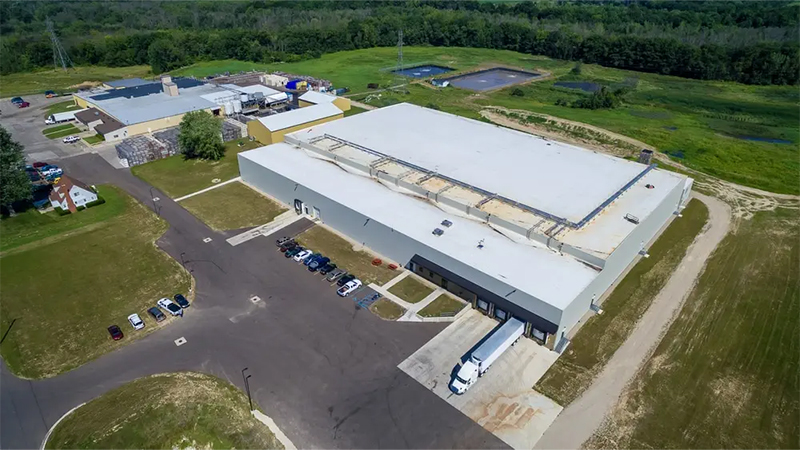A college degree is no longer just preparation for a job.
“It’s preparation for a career, preparation to be a community citizen,” said Jennifer Bott, provost and vice president for academic affairs at Western Michigan University (WMU).
This change in the role of higher education means an increased need to communicate to students, families, and area businesses what colleges and universities can offer.
This can start with rethinking the school’s brand. “A brand is so much more than a logo or a tagline,” Bott said. “Over the course of 12 months, we’ve connected with more than 6,000 members of our community, and we’ve asked the question, ‘What does a Western Michigan University degree mean?’”
The answer is evolving, Bott said, but there’s consensus that the purpose of a degree goes beyond professional enrichment to include personal growth. So, Bott’s mission is to make sure students find their passions and use their skills to better themselves and their communities.
“A part of our brand is also the recognition that education doesn’t end when our students walk across that stage at Miller auditorium at graduation,” Bott said. “We’re thinking about interesting ways to leverage their experiences to help our students identify their futures.”
And that can start by helping students make informed choices about which majors and careers fit them.
Recent research from the National Center for Education Statistics found that about one-third of students enrolled in bachelor’s degree programs changed majors. The same study, which looked at 25,000 college students nationwide, also found that one in 10 students changed majors more than once.
It might be hard to put a firm number on the value of a college education. But data from the U.S. Bureau of Labor Statistics (BLS) shows education can pay off—literally. The more you learn, the more you earn.
The BLS found that in 2018, workers with at least a bachelor’s degree earned more than the median weekly earnings of $932. Weekly earnings for people with doctoral or professional degrees were more than triple those with the lowest level of education, which is less than a high school diploma.
To better help students find their passions and enter meaningful, lucrative careers, regional economic development catalyst Southwest Michigan First partners with WMU Career Services to deliver Internship 101 several times a year. It is a workshop geared toward helping employers develop meaningful internship programs for students.
“In times of low unemployment like the one we are in now—Kalamazoo County’s jobless rate was at three percent in the fall of 2019—there is an increased need for students to help fill those jobs that are open,” said Kim Weishaar, chief financial officer of Southwest Michigan First. According to the Pure Michigan Talent Connect website, at least 12,000 open jobs are available in the region right now.
“Regional companies have open positions, but the region doesn’t necessarily have the numbers of talented individuals required to fill them,” Weishaar said. “So we are very fortunate that we have WMU and other partners in the community that are training workers with the skills to fill those jobs.”
With more than 41,000 students enrolled in higher education, Southwest Michigan is a hub for future professionals. A large university can mean a large talent pipeline for employers, which can be a significant factor in where a company chooses to set up shop or expand, like when on November 6, FedEx publicly announced that it would be occupying a new distribution center to be built in Portage. Once at full capacity, this project is expected to provide opportunities for 924 full-time and contract employees.
Programs like Internship 101 help companies bring in interns, integrate them in company culture, teach them valuable skills, and—ultimately—hire them on as full-time employees. Several dates for the workshop are planned for 2020.
“I think one of the things that’s really unique about internships is the opportunity to connect passion and career readiness a lot earlier,” Bott said. “Most institutions push junior year internships. We’re saying that’s too late. We need to equip our students with the vocabulary of their chosen profession sooner.
“When students are ignited, they move through their education much more confidently and quickly, which we know helps reduce the cost,” Bott said. “We’re so fortunate to have a partner in this with Southwest Michigan First. They are as deeply connected to our students’ success as we are, because that’s how our workforce evolves in our community.”




